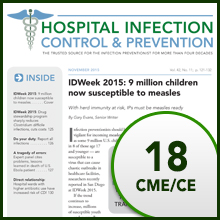Many Practicing Physicians Have Few, If Any, Website Ratings
February 23rd, 2017
SPRINGFIELD, MA — How much is your practice affected by physician-rating websites?
The answer is mixed, according to a new JAMA study. While most potential patients now say that online reviews are a factor in how they choose a physician, a third of doctors in a recent sample had no reviews on any site.
Furthermore, according to the Baystate Medical Center-led research, the analysis of 28 commercial physician-rating websites found search mechanisms difficult to use and not very precise.
At the same time, the article notes that about 60% of patients consider online reviews to be important tools to help them choose care. In some ways they have little choice but to use physician-rating websites, according to study authors, because publicly reported quality data are not that granular.
That notwithstanding, the researchers suggest that "these results demonstrate that it is difficult for a prospective patient to find (for any given physician on any commercial physician-rating website) a quantity of reviews that would accurately relay the experience of care with that physician."
For the study, the researchers compared 28 physician-rating websites to publicly available lists of registered and active physicians, identifying a random sample of 600 physicians from three metropolitan areas -- Boston, Portland, OR, and Dallas. They then searched each website for reviews and calculated average and median number of reviews per physician per site.
Results indicate that most of the sites did not allow users to search by clinical condition, sex of physician, hospital affiliation, languages spoken, or insurance accepted. Among the 8,133 quantitative reviews for the 600 physicians, one-third didn’t have a review on any site. For those with at least one review on any site, the median number was seven reviews per physician across all sites.
“Commercial physician-rating websites have significant limitations,” the researchers emphasize. “Search mechanisms are cumbersome and reviews scarce.”
On the other hand, they point out that the number of physician reviews online appears to be increasing, citing a similar 2009 study revealing only 190 reviews for 300 physicians across 33 sites, with 73% of physicians having no review on any site.
“However, the increase in number of reviews that we observed was not meaningful; most physicians in 2016 still had no more than one review on any site,” study authors add, noting that their study was limited by small sample size, inability to limit the denominator to practicing physicians, and inability to assess the effect of reviews on patients or physicians.
They suggest that methods using systematic data collection, such as surveys, might be a better way to gather a “sufficient quantity and quality of reviews to allow patients to make inferences about patient experience of care."

FEATURED RESOURCE





